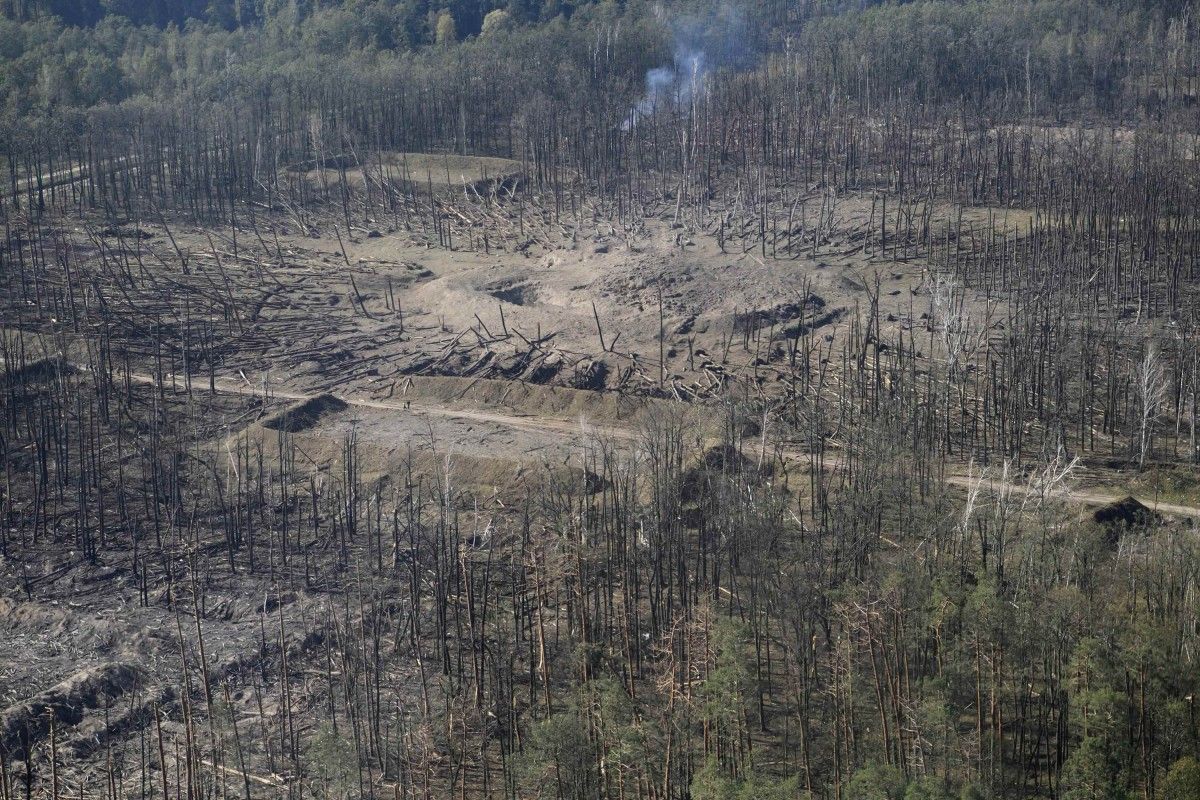
Week’s milestones. Kalynivka fire, twists and turns in Rada, and test of education
The explosions at the artillery depots in Kalynivka resulted in an unexpected political resonance. Parliamentarians in their non-plenary week are desperate to attract public attention to their personas. PM Groysman continues to promise a significant economic improvement. The new law on education came into force and now requires protection.
Explosions at the huge artillery depots in Kalynivka provoked a dialectical reaction in Ukrainian society. It's not about the weird comments hinting at the "salute in honor of Poroshenko’s birthday," it's about much more serious issues. On the one hand, it is worth emphasizing the coherent response by state authorities and volunteers who did not allow any human victims in an unexpected technogenic catastrophe. On the other hand, there is a political aftermath of the explosions, which triggered a well-coordinated attack by Interior Minister Arsen Avakov's comrades-in-arms against the chief of the General Staff, Viktor Muzhenko. The latter issue causes outright bewilderment and regret. If a number of Ukrainian politicians have forgotten that Ukraine is continuing its hybrid confrontation with Russia, they should recall that among the Russian hybrid war’s instruments is the internal destabilization in Ukraine.
It is interesting to note that the legislators during their non-plenary week made every effort to attract attention to themselves. Speaker Andriy Parubiy offered that the public not recall the number of sessions closed early and the parliament’s overall poor efficiency. Yulia Tymoshenko managed to eschew the "ban" on her access to TV coverage, which seems to be existing only in her imagination. It seems that Lady U persistently searches for new platforms to channel her stressed cheerfulness to her potential voters.
The president and prime minister took turns in refuting the many assumptions about certain disagreements between them. Petro Poroshenko during his Ivano-Frankivsk visit stressed that the most terrible times in the Ukrainian economy were already behind. Volodymyr Groysman said that he was preparing a "budget of economic development", where top priority will be the issues of defense, security, support of the agri-industrial complex and farming, and stimulation of small and medium-sized businesses. It will be interesting to see whether parliamentarians will resist the temptation of a new offensive against a simplified taxation system, which the head of state warned them against in early September. Besides, it is interesting to see whether $1.7 billion already confiscated from Viktor Yanukovych, according to Yuriy Lutsenko, (it seems that this is not all the assets of the former president) will help the Ukrainian coffers? Moreover, we are yet to find out whether common sense prevails over corporate interests during the adoption of the country's budget.
Today we are witnessing that rare case when the recently adopted and enacted law on education needs the most effective protection on the part of authorities. It is not enough to submit it for the assessment by the Venice Commission. It requires coordinated efforts by the legislative and executive authorities as well as the president in order not just to protect the norms of the new legislation but to show that Ukraine is able to conduct a dialogue with its partners. This is not formally required by the Ukraine-EU Association Agreement but these skills are required by Ukraine’s European and Euro-Atlantic integration, to which Kyiv says is committed.
Yevgeny Magda

